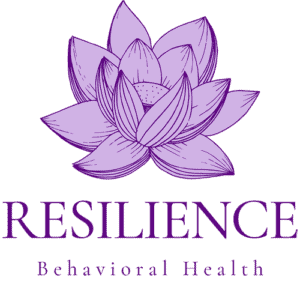Grief and Loss Therapy Program in Boston, MA
Grief is a multifaceted and often intense journey that can affect every aspect of a person’s life. Often, individuals find themselves needing help to process through the complicated and overwhelming emotions that come with loss. Resilience Behavioral Health’s grief therapy in Boston stands out as a vital resource for those in need of compassionate and effective loss counseling. Our specialized therapists help individuals find lasting coping skills and achieve healing following any kind of loss that has impacted their life.

Understanding Our Grief Therapy Program in Boston, Massachusetts
Grief therapy, often referred to as bereavement counseling, is a specialized form of psychotherapy designed to help individuals navigate the complex emotions associated with significant losses. This type of therapy is essential for processing grief, which can arise from various life events such as the death of a loved one, a divorce, the end of a significant relationship, or even the loss of a job. Each of these experiences brings about a unique set of feelings that can be overwhelming, including sadness, anger, confusion, and even guilt. Understanding and acknowledging these emotions is crucial for healing.
Grief therapy provides a safe space for individuals to express their emotions without judgment. Through various therapeutic approaches, clients are encouraged to explore their feelings and memories, allowing them to honor their loss while also learning to cope with their new reality. Therapists skilled in grief counseling use techniques such as cognitive behavioral therapy (CBT), mindfulness, and narrative therapy to help individuals reframe their experiences and find meaning in their grief.
Moreover, grief therapy recognizes that everyone grieves differently. There is no “right” way to experience loss, and the journey through grief is deeply personal. Therapists work to tailor their approach to meet the unique needs of each individual, acknowledging that factors such as cultural background, personality, and previous experiences with loss can all influence how one processes grief.
Overall, grief therapy is not just about managing pain; it’s about facilitating growth and understanding in the wake of loss. It helps individuals learn to carry their grief in a way that honors their past while allowing them to embrace their future. As such, it plays a crucial role in promoting mental, emotional, and physical well-being in a fast-paced world where the effects of grief can often feel overwhelming.
Treatment and Recovery for Grief and Loss
Resilience Behavioral Health is a leading provider of mental health services in Boston, renowned for its dedicated approach to grief therapy. Their mission is to provide supportive, empathetic, and evidence-based treatment to those grappling with loss. At Resilience Behavioral Health, the process of treatment and recovery is tailored to meet the unique needs of each client, ensuring that individuals receive personalized care.

The team at Resilience Behavioral Health consists of highly trained therapists who specialize in grief counseling, understanding that each person’s experience of loss is distinct. They employ a variety of therapeutic techniques, such as Cognitive Behavioral Therapy (CBT) and mindfulness practices, to help clients process their emotions and develop healthy coping strategies. In addition to individual therapy, the center offers group sessions where individuals can connect with others facing similar challenges, fostering a sense of community and shared understanding. This holistic approach not only aids in healing but also empowers clients to reclaim their lives and find hope for the future.
The Core Components of Grief & Loss Teatment in Massachusetts at Resilience Behavioral Health
Grief & loss treatment in Massachusetts is designed to help individuals navigate the complex emotions associated with loss. Here are the core components that typically define an effective grief therapy program:
Emotional Processing: One of the primary goals of grief therapy is to allow individuals to express and process their emotions. Therapists provide a safe space for clients to explore feelings such as sadness, anger, guilt, and confusion, helping them understand that these emotions are a natural part of the grieving process.
Coping Strategies: Grief can be overwhelming, and developing healthy coping mechanisms is essential. Therapists work with clients to identify and implement strategies to manage their emotions effectively, such as mindfulness techniques, journaling, or engaging in creative outlets.
Normalization of Grief: Understanding that grief is a universal experience can be comforting. Therapists often emphasize that there is no “right” way to grieve, normalizing individual responses and helping clients feel less isolated in their experience.
Memory Integration: Honoring the memory of the loved one is an important aspect of grief therapy. Therapists guide clients in creating rituals or memorials, allowing them to celebrate their loved one’s life while coming to terms with the loss.
Support Systems: Building a supportive network is crucial for recovery. Therapists may encourage clients to reach out to family and friends, or to participate in support groups where they can connect with others who understand their journey.
Goal Setting: As clients begin to process their grief, therapists often help them set achievable goals for moving forward. These goals may focus on personal growth, rediscovering joy, or finding meaning after loss.
Relational Dynamics: Grief can affect interpersonal relationships. Therapy may address how the loss has impacted relationships with others and provide tools for improving communication and support within those connections.
These components work together to create our comprehensive approach to treatment for grief and loss in Boston, helping individuals not only cope with their loss but also find a path toward healing and renewed hope.
Signs and Symptoms of Grief & Loss Issues
It’s essential to recognize when grief is becoming unmanageable or evolving into more serious issues like prolonged grief disorder or depression. Signs and symptoms include:
- Intense Sadness or Emotional Numbness: Profound, an unending sadness or feeling emotionally numb for an extended period.
- Persistent Rumination: Continual focus on the loss, often preventing individuals from moving forward.
- Detachment: Withdrawing from friends, family, and activities once enjoyed.
- Physical Symptoms: Unexplained physical aches, changes in appetite or sleep patterns, or frequent illnesses.
- Behavioral Changes: Irregularities in one’s normal behavior, such as irritability, difficulty concentrating, or increased substance use.
- Existential Questions: Persistent questioning of the meaning or purpose of life following a loss.

What to Expect at Resilience Behavioral Health’s Grief Therapy Program in Boston
Embarking on a therapeutic journey at Resilience Behavioral Health is a step toward recovery and renewed hope. Here’s a glimpse of what clients can expect:
- Welcoming and Comfortable Environment: The facility is designed to provide a comforting and non-judgmental atmosphere, ensuring clients feel safe and supported from their very first visit.
- Professional and Compassionate Staff: The team at Resilience Behavioral Health comprises licensed therapists and counselors who specialize in grief therapy. They are compassionate, understanding, and dedicated to helping each client through their unique journey.
- Comprehensive Care: The treatment plans are comprehensive and multifaceted, incorporating various therapeutic modalities to address all aspects of grief.
- Regular Progress Evaluation: Therapists regularly evaluate each client’s progress and adjust treatment plans as needed, ensuring that the client’s evolving needs are met.
- Support Beyond Therapy: Resilience Behavioral Health offers resources and support beyond standard therapy sessions, such as workshops, support groups, and educational materials, to help clients throughout their healing process.
Take the First Step Toward Healing with Resilience
Dealing with grief can be one of the most challenging experiences in life, but you don’t have to face it alone. Resilience Behavioral Health in Boston offers a compassionate and comprehensive approach to help you navigate your loss. Whether through individual or group therapy, every step of their grief therapy program is designed to support you on your journey to healing.
If you or someone you know is struggling with grief, reach out to Resilience Behavioral Health today. Let their team of caring professionals help you find resilience and hope amidst your pain. Contact Resilience Behavioral Health to schedule an assessment and begin your path toward recovery. Embrace the support and take the first step toward a brighter tomorrow with Resilience Behavioral Health.

